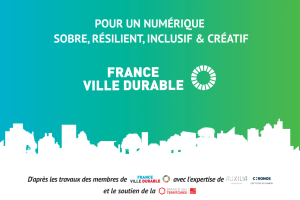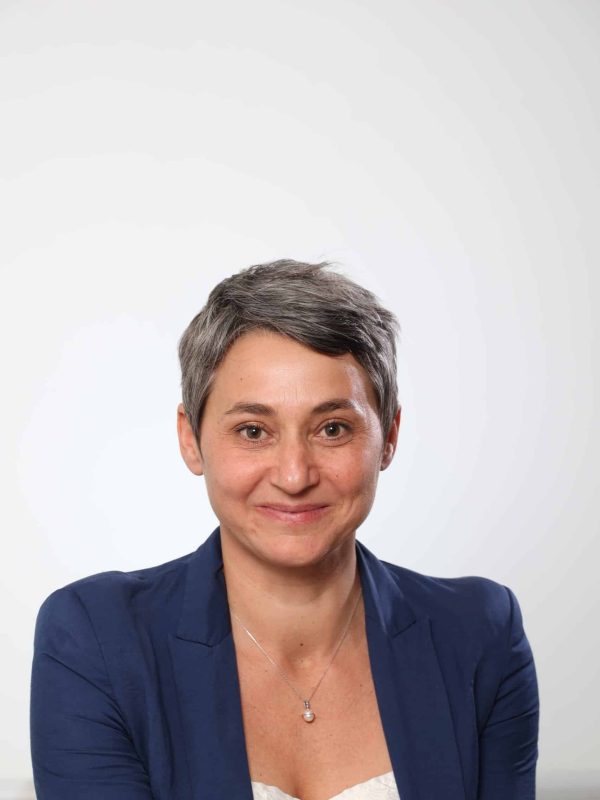Because it is urgent to act for responsible digital technology in the service of territorial transformation, Sustainable City by France and Banque des Territoires have published a report called “Towards a Sustainable, Resilient, Inclusive, and Creative Digital Environment”.
This document is the outcome of the discussions carried out by the working group of SCbF, which brought together representatives from the government, local authorities, businesses, and experts. It is an operational deliverable, which aims to provide professionals with recommendations, tools, and methods for responsible digital practices that contribute to the ecological and social transformation of territories.
In short
Digital technology is now everywhere. It has changed the way we consume, work, get informed, and even receive healthcare. It has become the cornerstone of our daily lives, an extension of ourselves. Ubiquitous in the functioning of infrastructure, it shapes society as a whole. The acceleration of almost instantaneous flows, the dematerialization and simplification of processes, and the compilation of an infinite amount of data made more accessible – some see it as a revolution. But what is the environmental and social impact of digital technology?
On one hand, its capabilities make it a powerful tool for optimizing urban services. It allows us to understand the interactions of multiple factors in a resilience approach: human activities, climate, biogeochemical cycles, and more. When serving the public interest, it can prove invaluable for information and engagement of the widest possible audience. Digital technology is even a practical tool for the circular economy and sharing, such as resale platforms promoting reuse and car-sharing platforms.
On the other hand, its unlimited deployment and usage eventually raise questions. Because from the manufacturing of its devices to data exchanges, digital technology contributes to pollution. The CO₂ emissions it generates weigh heavily on our carbon footprint, and its various impacts on health are increasingly well-documented. As a result, in the face of the environmental urgency and the necessary shift in our development models, as with many other technological advances before, the question of the purpose and “right usefulness of digital technology” arises.
It is not about renunciation but rather about discernment. Just because something is technically possible does not mean it must be done absolutely, and in terms of ecological transformation, “avoidance” is often much more effective than “greening.” Resource consumption, infrastructure construction, equipment, and usage – these are all areas to be collectively explored to determine what is truly necessary and sustainable.
Sustainable City by France would like to thank all the participants of the working group, the Chronos / Auxilia consultancy for their expertise, as well as the co-pilots Bouygues Construction, Suez, and FNAU.
Check out what Camille Waintrop-Boyon (Work-coordination and assessment officer at SCbF) has to say about the topic, in an interview conducted by AEF Info :
It is primarily about limiting the negative impacts of digital technology, addressing climate and environmental challenges, but also protecting the territory from potential vulnerabilities related to digital technology. We recommend conducting an assessment of the environmental impact of digital technology beyond the 'sole' carbon impact, questioning the needs and providing suitable digital solutions, and limiting the purchase of new equipment... Other recommendations view digital technology as a tool for transformation: using this leverage to promote social inclusion and identify territorial vulnerabilities...
Camille Waintrop-Boyon, Sustainable City by France
Further information
How can public health and environmental issues be systematically included in the heart of the territorial strategy and the decisions made in defining projects? How can health imperatives be integrated into planning, design, and management for sustainable, resilient, and resident-friendly urbanism?
This document aims to answer these questions by presenting several ways to achieve sustainable urbanism, which is a priority for territories and serves as a tool for improving urban health.













